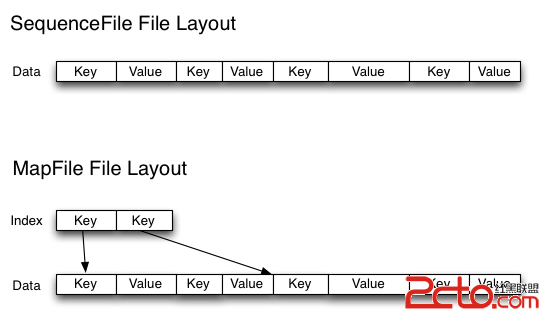OracleonRedHatLinux
Home Page of Werner PuschitzLast fiddled: April 10, 2003.
377186 Pageviews since August 2001
Oracle on Red Hat Linux
Tuning and Optimizing Red Hat Linux Advanced Server for Oracle9i Database
Oracle 9i Installation on Red Hat Linux 7.1, 7.2, 7.3, 8.0, and on Red Hat Advanced Server 2.1
Here is a summary (HOWTO) of how I installed:
Oracle 9iR2 (9.2.0) Database on Red Hat Advanced Server 2.1 (kernel 2.4.9-e.3, glibc 2.2.4-26)
Oracle 9iR2 (9.2.0) Database on Red Hat 8.0 (kernel 2.4.18-18.8.0, glibc 2.2.93-5)
Oracle 9iR2 (9.2.0) Database on Red Hat 7.3 (kernel 2.4.18-3, glibc 2.2.5-34)
Oracle 9iR1 (9.0.1) Database on Red Hat 7.3 (kernel 2.4.18-3, glibc 2.2.5-34)
Oracle 9iR1 (9.0.1) Database on Red Hat 7.2 (kernel 2.4.7-10, glibc 2.2.4-13)
Oracle 9iR1 (9.0.1) Database on Red Hat 7.1 (kernel 2.4.2-2, glibc 2.2.2-10)
Some of the Oracle errors and problems covered here were only experienced in connection with 9i (9.0.1) and some only with 9iR2 (9.2.0). But since I cannot say for sure that a 9i (9.0.1) installation error will never show up during 9iR2 (9.2.0) installation, I simply kept all errors and problems listed together, see Oracle Installation Errors and Oracle Installation Problems, Important Tips and Hints.
NOTE:
Red Hat 7.1 has been validated for Oracle9i Database and for Oracle9i Application Server, see " Red Hat Announces Validation of Red Hat Linux For Oracle ." Release 2 of Oracle 9i Database and Application Server, and Oracle E-Business Suite 11.5.7 have been certified on Red Hat Linux Advanced Server, see " Oracle and Red Hat Collaborate to Develop Enhanced Enterprise Capabilites for Red Hat Linux Advanced Server."
Red Hat 8.0:
The only problem I experienced with Oracle 9iR2 (9.2.0) on Red Hat 8.0 was:
"Error in invoking target install of makefile /opt/oracle/product/9.2.0/ctx/lib/ins_ctx.mk"
But this does not necessarily mean that you won't see other problems described here. See Oracle Installation Errors for more information.
Documentation
Oracle9i Database Documentation for Linux
Oracle9iR2 on Linux: Performance, Reliability and Manageability Enhancements on Red Hat Linux Advanced Server 2.1
An Overview of Red Hat Advanced Server V2.1 Reliability, Availability, Scalability, and Manageability (RASM) Features
Oracle Performance Tuning on Linux (Part I) (Simple ways to achieve Oracle performance improvements)
The RAW Facts on Filesystems (Part II) (Ways to achieve Linux performance improvements for databases in general)
Downloading and Installing Red Hat Linux 7.1, 7.2, 7.3, and/or 8.0
To download Red Hat Linux 7.x, 8.x, check the links at http://www.puschitz.com/RedhatDownload.html
You can find the installation guides for installing Red Hat Linux under Red Hat Linux Manuals.
NOTE: You cannot download Red Hat Linux Advanced Server 2.1, you can only download the source code. If you want to get the binary CDs, you will have to buy it at http://www.redhat.com/software/linux/advanced/.
Unpacking Downloaded Oracle9i Installation Files and Burning Oracle9i CDs
Download Oracle9i for Linux from the following web site:
http://otn.oracle.com/software/products/oracle9i/htdocs/linuxsoft.html
Uncompress and unpack downloaded files:
For Oracle9i (9.2.0):
One step procedure (uses less disk space and is faster):
zcat lnx_920_disk1.cpio.gz | cpio -idmv
zcat lnx_920_disk2.cpio.gz | cpio -idmv
zcat lnx_920_disk3.cpio.gz | cpio -idmv
Two step procedure:
# Uncompress
gunzip lnx_920_disk1.cpio.gz lnx_920_disk2.cpio.gz lnx_920_disk3.cpio.gz Linux9i_Disk3.cpio.gz
# Unpack the downloaded files:
cpio -idmv < lnx_920_disk1.cpio
cpio -idmv < lnx_920_disk2.cpio
cpio -idmv < lnx_920_disk3.cpio
For Oracle9i (9.0.1):
One step procedure (uses less disk space and is faster):
zcat Linux9i_Disk1.cpio.gz | cpio -idmv
zcat Linux9i_Disk2.cpio.gz | cpio -idmv
zcat Linux9i_Disk3.cpio.gz | cpio -idmv
Two step procedure:
# Uncompress
gunzip Linux9i_Disk1.cpio.gz Linux9i_Disk2.cpio.gz Linux9i_Disk3.cpio.gz
# Unpack the downloaded files:
cpio -idmv < Linux9i_Disk1.cpio
cpio -idmv < Linux9i_Disk2.cpio
cpio -idmv < Linux9i_Disk3.cpio
Now you should have 3 directories containing installation files:
Disk1
Disk2
Disk3
I executed the following commands when I burned the 3 CDs with my external USB CD Burner HP-8230e:
mkisofs -r Disk1 | cdrecord -v --eject dev=0,0,0 speed=4 -
mkisofs -r Disk2 | cdrecord -v --eject dev=0,0,0 speed=4 -
mkisofs -r Disk3 | cdrecord -v --eject dev=0,0,0 speed=4 -
(You can get the dev numbers when you execute cdrecord -scanbus ).
Swap Space
In order to perform a typical Oracle 9i installation and to create a 易做图 prototype database, Oracle says that you need a minimum of 512MB of RAM for the Oracle9i (9.0.1) Server, and the amount of disk space (swap space) should be equal to twice the amount of RAM or at least 400 MB, whichever is greater.
When I installed Oracle 9i (9.0.1 & 9.2.0), I used 600 MB of swap space on a PC with 256MB of RAM which worked for me. When I used less swap space on this PC (256MB RAM), I ran out of memory. I definitely recommend to use more RAM and/or more swap space as specified in the Oracle installation guide.
NOTE: If you do not have enough swap space or RAM during the Oracle installation, in particular during the database creation, your Oracle server (Linux) will temporarily become unresponsive to any events for several minutes.
Check your memory by executing:
grep MemTotal /proc/meminfo
Check swap space by executing:
cat /proc/swaps
You can also add temporary swap space by creating a temporary swap file instead of using a raw device. Here is the procedure:
As root:
dd if=/dev/zero of=tmpswap bs=1k count=900000
chmod 600 tmpswap
mkswap tmpswap
swapon tmpswap
To disable the temporary swap space execute the following commands:
As root:
swapoff tmpswap
rm tmpswap
Shared Memory
For Oracle 9i (9.2.0) installation I had to increase the maximum shared memory size on my Linux server. The Oracle Database Configuration Assistant printed the following error message on my server:
ORA-27123: unable to attach to shared memory segment.
I temporarely increased the shmmax setting for the kernel by executing the following command:
As root:
# cat /proc/sys/kernel/shmmax
33554432
# echo `expr 1024 * 1024 * 1024` > /proc/sys/kernel/shmmax
# cat /proc/sys/kernel/shmmax
1073741824
#
It is recommended to increase the shmmax setting permanently for Oracle. For more information, see Oracle Installation Errors.
/tmp Space
The Oracle Universal Installer requires up to 400 MB of free space in the /tmp d





